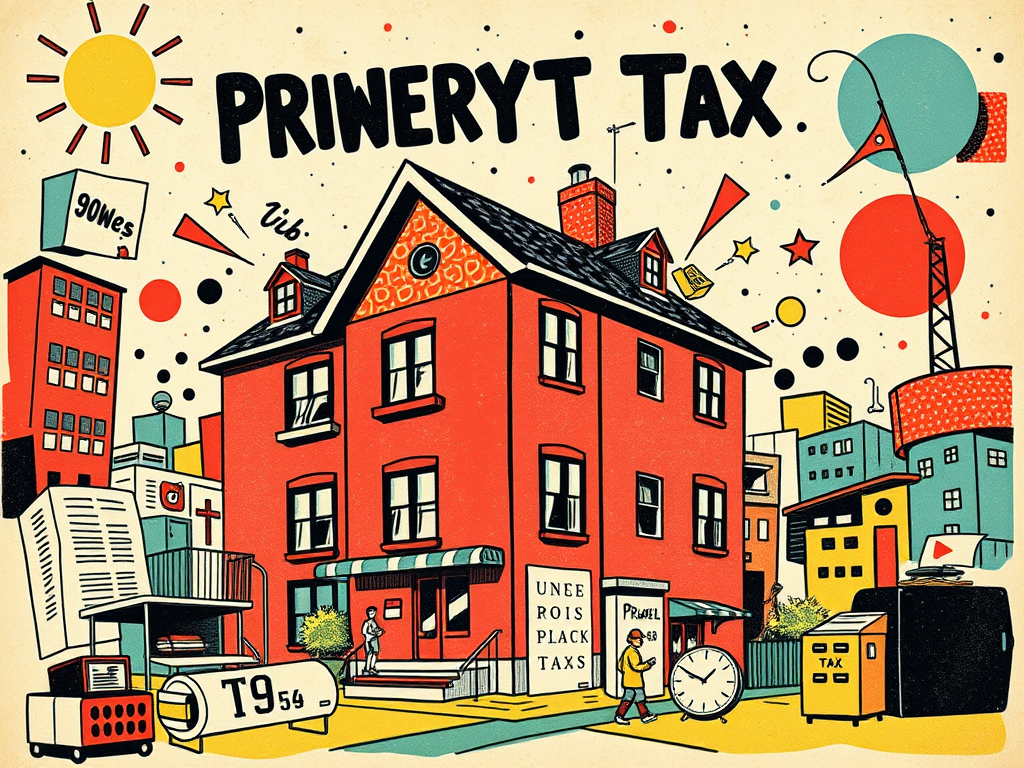
Real Estate vs. Equities: The Case for Greek Assets in Your Portfolio
Reading time: 12 minutes
Table of Contents
- Introduction
- The Greek Economic Landscape
- Real Estate Opportunities in Greece
- Greek Equities: A Hidden Gem?
- Comparative Analysis: Real Estate vs. Equities
- Investment Strategies for Greek Assets
- Risks and Challenges
- Conclusion
- FAQs
1. Introduction
As global investors continue to seek diversification and yield in an increasingly complex economic landscape, the Greek market has emerged as a compelling option for both real estate and equity investments. This comprehensive analysis will explore the current state of the Greek economy, delve into the opportunities presented by its real estate and equity markets, and provide a comparative analysis to help investors make informed decisions.
The Greek economy, once beleaguered by debt crises and austerity measures, has shown remarkable resilience and growth potential in recent years. This economic renaissance has created unique investment opportunities, particularly in real estate and equities. As we navigate through this analysis, we’ll examine the key drivers of growth, potential risks, and strategies for maximizing returns in the Greek market.
2. The Greek Economic Landscape
To understand the investment potential in Greece, it’s crucial to first grasp the country’s current economic situation and its trajectory for the future.
2.1 Economic Recovery and Growth
Greece has made significant strides in its economic recovery since the depths of its financial crisis. The country has implemented structural reforms, improved fiscal management, and attracted foreign investment, leading to a more stable and growth-oriented economic environment. Key economic indicators paint a picture of steady improvement:
- GDP Growth: Greece’s GDP has shown consistent growth in recent years, with projections indicating continued expansion.
- Unemployment Rate: While still high by European standards, unemployment has been steadily decreasing, reflecting improved economic conditions.
- Foreign Direct Investment (FDI): Greece has seen a surge in FDI, particularly in sectors such as tourism, energy, and technology.
2.2 Reforms and Policy Measures
The Greek government has implemented a series of reforms aimed at improving the business environment and attracting investment. These include:
- Streamlined bureaucratic processes for business registration and operation
- Tax incentives for foreign investors
- Privatization of key state assets to increase efficiency and attract capital
- Investment in infrastructure and digital transformation
These measures have significantly enhanced Greece’s attractiveness as an investment destination, setting the stage for potential opportunities in both real estate and equities.
3. Real Estate Opportunities in Greece
The Greek real estate market has emerged as a particularly attractive sector for foreign investors, offering a combination of value, growth potential, and lifestyle benefits.
3.1 Market Overview
The Greek real estate market has shown strong signs of recovery and growth in recent years. Key trends include:
- Rising property prices, particularly in prime locations and tourist hotspots
- Increased demand for both residential and commercial properties
- Growing interest from foreign buyers, especially in the luxury segment
- Development of new, high-quality projects catering to international standards
3.2 Investment Hotspots
Several areas in Greece have emerged as particularly attractive for real estate investment:
- Athens: The capital city offers a mix of historical charm and modern amenities, with areas like Kolonaki and Glyfada seeing significant price appreciation.
- Greek Islands: Popular tourist destinations such as Mykonos, Santorini, and Crete continue to attract high-end buyers and investors.
- Thessaloniki: Greece’s second-largest city is experiencing growth in both residential and commercial real estate sectors.
3.3 The Golden Visa Program
One of the key drivers of foreign investment in Greek real estate is the country’s Golden Visa program. This initiative offers residency permits to non-EU nationals who invest in Greek property, making it an attractive option for those seeking both investment opportunities and European residency. The golden visa greece program has been particularly popular among investors from China, Russia, and the Middle East.
4. Greek Equities: A Hidden Gem?
While real estate has garnered significant attention, the Greek equity market also presents compelling opportunities for investors willing to navigate its nuances.
4.1 Stock Market Performance
The Athens Stock Exchange (ASE) has shown promising performance in recent years, with several factors contributing to its appeal:
- Improved corporate governance and transparency
- Increased foreign investor participation
- Successful privatizations of state-owned enterprises
- Growth in key sectors such as tourism, energy, and technology
4.2 Sectors of Opportunity
Several sectors in the Greek equity market stand out as particularly promising:
- Banking: Greek banks have undergone significant restructuring and are now better capitalized and positioned for growth.
- Tourism: Listed companies in the hospitality and travel sectors benefit from Greece’s booming tourism industry.
- Energy: Greece’s push towards renewable energy has created opportunities in both traditional and green energy stocks.
- Technology: Emerging tech companies and startups are gaining traction, offering high-growth potential.
5. Comparative Analysis: Real Estate vs. Equities
When considering Greek assets for portfolio allocation, it’s essential to weigh the relative merits of real estate and equities.
5.1 Risk and Return Profile
Real Estate:
- Generally considered lower risk due to tangible asset backing
- Potential for steady rental income and long-term capital appreciation
- Less liquidity compared to equities
Equities:
- Higher potential for short-term gains but also increased volatility
- More liquid than real estate investments
- Opportunity for dividend income from select stocks
5.2 Diversification Benefits
Both real estate and equities in Greece offer diversification benefits for international investors:
- Real estate provides exposure to the Greek property market and potential residency benefits
- Equities offer a broader exposure to the Greek economy across various sectors
- Combining both can create a balanced approach to Greek market exposure
6. Investment Strategies for Greek Assets
To maximize the potential of Greek investments, consider the following strategies:
6.1 Real Estate Strategies
- Focus on prime locations with strong rental potential
- Consider renovation projects to add value to properties
- Explore opportunities in emerging areas with growth potential
- Leverage the Golden Visa program for added benefits
6.2 Equity Investment Approaches
- Conduct thorough due diligence on individual companies and sectors
- Consider a mix of blue-chip stocks and growth-oriented smaller companies
- Utilize ETFs or mutual funds for broader exposure to the Greek market
- Stay informed about economic reforms and policy changes that may impact equity performance
7. Risks and Challenges
While the Greek market offers significant potential, investors should be aware of the following risks:
- Political instability and policy changes
- Ongoing economic challenges and potential for future crises
- Bureaucratic hurdles and complex regulatory environment
- Currency risk for non-Euro investors
- Potential oversupply in certain real estate markets
- Liquidity concerns in the equity market, particularly for smaller stocks
8. Conclusion
The Greek market presents a unique opportunity for investors seeking diversification and growth potential in their portfolios. Both real estate and equities offer compelling reasons for consideration, each with its own risk-return profile and strategic advantages.
Real estate in Greece provides tangible assets with the potential for steady income and capital appreciation, along with lifestyle benefits and possible residency advantages through the Golden Visa program. On the other hand, Greek equities offer exposure to a broader range of sectors and the potential for higher short-term gains, albeit with increased volatility.
The key to successful investment in Greek assets lies in thorough research, careful due diligence, and a clear understanding of one’s investment goals and risk tolerance. By taking a balanced approach and staying informed about economic developments and market trends, investors can potentially reap significant rewards from the Greek market’s ongoing recovery and growth.
As with any investment decision, it’s crucial to consult with financial advisors and local experts to tailor strategies to individual circumstances and objectives. The Greek market, with its blend of historical significance and modern economic potential, offers a unique opportunity for investors willing to navigate its complexities and capitalize on its strengths.
9. FAQs
Q1: Is it safe to invest in Greek real estate given the country’s past economic troubles?
A1: While Greece has faced economic challenges in the past, significant reforms and economic recovery have improved the investment climate. However, as with any investment, due diligence is crucial. The real estate market has shown resilience and growth, particularly in prime locations and tourist areas. The Golden Visa program also provides additional security for foreign investors.
Q2: How does the Greek stock market compare to other European markets in terms of performance?
A2: The Greek stock market has shown promising performance in recent years, often outperforming some larger European markets. However, it’s generally considered more volatile and less liquid than more established markets. This can present both opportunities for higher returns and increased risk. Investors should carefully consider their risk tolerance and investment horizon.
Q3: What are the tax implications for foreign investors in Greek assets?
A3: Tax implications can vary depending on the type of investment and the investor’s country of residence. For real estate, there are property taxes and potential rental income taxes. For equities, capital gains and dividend taxes may apply. Greece has tax treaties with many countries to avoid double taxation. It’s advisable to consult with a tax professional familiar with both Greek and your home country’s tax laws.
Q4: How does the Golden Visa program work, and what are its benefits?
A4: The Greek Golden Visa program offers residency permits to non-EU nationals who invest at least €250,000 in Greek real estate. Benefits include visa-free travel within the Schengen Area, the ability to rent out the property, and a path to permanent residency and citizenship. The program has been popular among investors seeking both real estate opportunities and European residency rights.
Q5: Are there any restrictions on foreign ownership of Greek assets?
A5: Generally, there are few restrictions on foreign ownership of Greek assets. For real estate, there are some limitations in border areas and certain islands for non-EU citizens, but these can often be overcome with proper permissions. For equities, foreign investors can freely invest in the Greek stock market. However, certain strategic sectors may have specific regulations or ownership limits for foreign investors.

Article reviewed by Everett Bellingrath, CEO | Business Growth Consultant | Transforming Mid-Sized Companies Through Operational Efficiency & Market Expansion Strategies, on March 10, 2025



